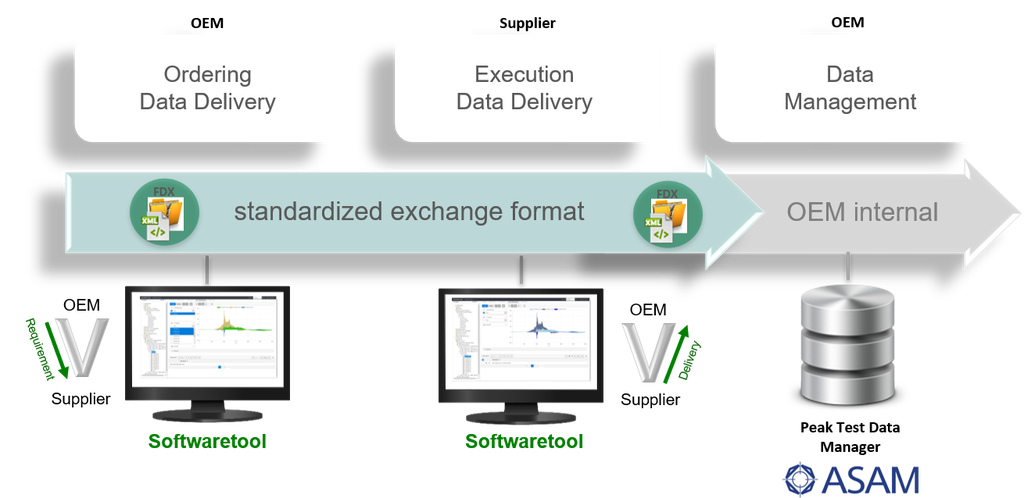Abo ut
Test Field Planning: Key Performance Indicators (KPIs) and plan comparisons enable reliable statements regarding the process quality of test fields
It is becoming more and more difficult for test field managers to meet the client’s requirements for flexible and punctual order processing and at the same time to achieve high utilization of cost-intensive test resources. The reason for this is the increasing number of test orders and test resources that have to be linked to one another in a complex network of processes.
By means of key performance indicators (KPIs) it is possible to make reliable statements about the process quality of test fields. Users of the Peak Test Management Suite can determine the KPIs from the test planning data and the test field´s status feedback. For example, the on-time completion of test orders and thus the reliability towards clients can be expressed using the parameter “On Time Delivery (OTD)”. During the calculation, the completion date determined as part of the test planning is compared with the actual completion date of a test order. The orders are then divided into “too early”, “on time” and “too late” in a diagram.
In particular, orders that were completed later than planned can then be subjected to further analyzes using the available data. Typical questions are:
- Which clients, test plans or order types are regular triggers for deadlines being postponed?
- What are the most common causes of postponements (e.g. changed priorities, unexpected events, unplannes system failure, etc.)?
- Which resources are always a bottleneck in the processing of test plans and test orders?

With Peak Test Management Suite, the occupancy plans of the test benches can be displayed at different times. In this way, postponements can be made visible very easily. The same applies to the project planning. The project planner can see which project tasks have changed in the course of the project implementation and which may have led to delays.
Based on the mentioned KPIs and plan comparisons, project and test teams can specifically analyze their cooperation and discuss improvements.
